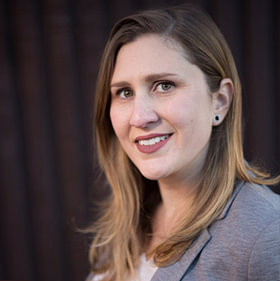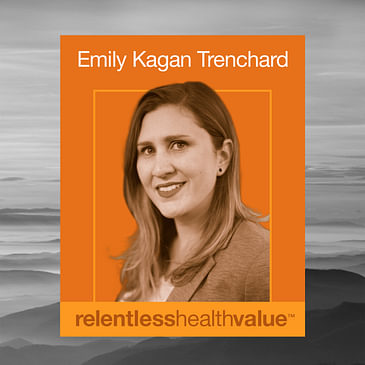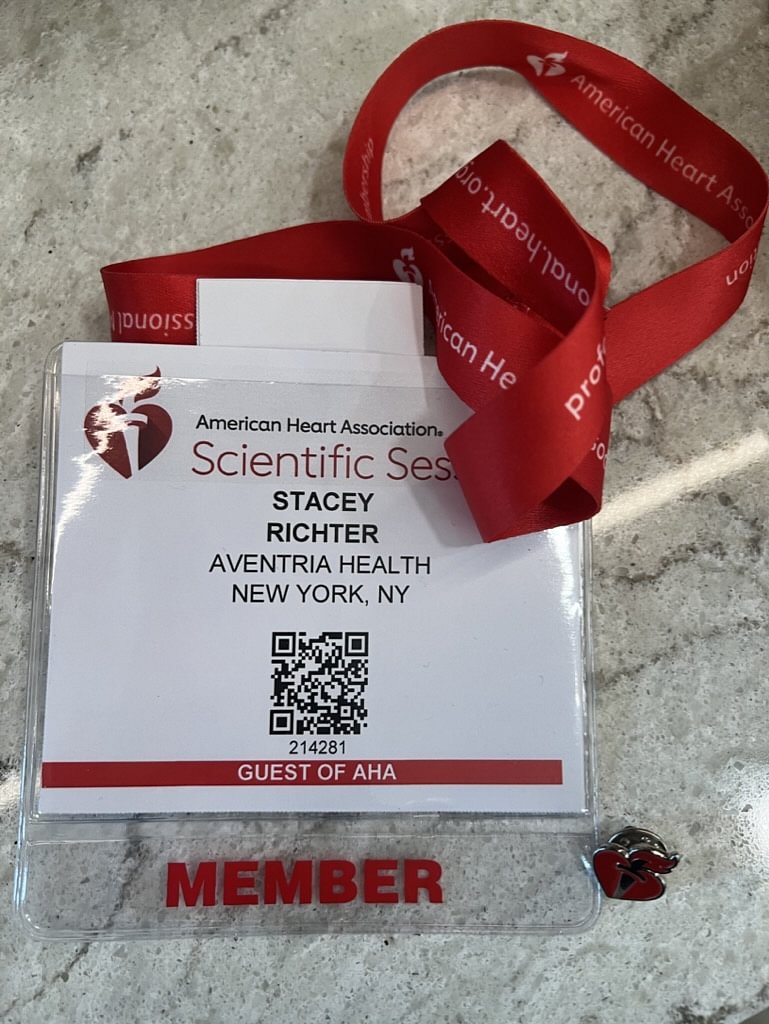For a full transcript of this episode, click here.
I thought I would encore this show after coming back from the 2023 NODE Conference held in the Microsoft building in New York City, which I always enjoy. NODE stands for Network of Digital Evidence. Why is evidence so important?
Here’s the NODE answer to this question: It is so smart purchasing decisions can be made by consumers, health systems, and payers so devices and software that improve patient experience, provide actionable insights, and save time and money become part of care delivery so trust is built between industry and healthcare.
No matter what direction you come at this from, evidence for care delivery endeavors is sorely needed.
What’s always interesting to me is kind of the context of this said evidence, however the “who said” evidence is evaluated by and to what end. It was a really interesting juxtaposition, frankly, to hit up the NODE conference—which is attended mainly by digital health entrepreneurs and health system execs—right on the heels of me going to multiple events with self-insured employer types like the PBGH (Pittsburgh Business Group on Health) summit in early December, for example.
What Emily Kagan Trenchard, my guest on this encore, talks about today is very much not a nice-to-have from the employer/purchaser point of view. It’s a must-have from their perspective because all of these care delivery, technological, and organizational inefficiencies that Emily alludes to … yeah, it’s all defined as expensive waste from the standpoint of the employers or other self-insured entities. These self-insured entities are the ones paying for fragmented and unsupported patient journeys with their escalating commercial rates, after all.
In sum, I like how Joseph Wu, MD, PhD, who is the current president of the AHA (American Heart Association), put it at the recent AHA Scientific Sessions in Philadelphia last month, which I was honored to attend.
Dr. Wu said during his presidential address, “Work hard, work smart, work together.” Emphasis on all of the above, especially the work together. That’s what the Relentless Health Value Tribe is all about, after all; so thanks so much for being a part of it.
So, a few things to remind everybody. First of all, don’t forget EHRs (electronic health records) were purpose built originally for billing. This is no secret. People quite openly have called EHR systems glorified cash registers. If I want to be generous, maybe I would restate this to say that EHRs were designed to document patient interactions. This is what their core architecture was built to achieve.
But today, there’s a lot that goes on that isn’t a traditional patient interaction. First of all, me even calling it, frankly, a patient interaction should give longtime listeners a clue where this is headed. I mean, say you’re sitting at home on your couch. I don’t know. You’re probably not considering yourself a patient. You’re considering yourself a person sitting on your couch.
However, say you’re sitting on your couch and you haven’t taken your COPD maintenance therapy. Potentially that is something of clinical significance that maybe should get figured out and noted somewhere—potentially prior to the acute event going down.
Or, still talking about things that are relevant to patient health but which don’t naturally tuck into an EHR system’s native architecture, maybe we have social workers and nutritionists and all kinds of people who are not doctors or nurses or PAs (physician assistants) in this mix. Most of the time, these people don’t even have access to the EHR.
In sum, what is happening between codes getting written in patient health records? Where’s all that information going?
My guest in this healthcare podcast, Emily Kagan Trenchard, makes a super point about all of this that I haven’t heard made so succinctly or so eloquently. She talks about identifying the core functionalities, the centers of gravity that are needed to bring together providers and patients and everybody else in the mix.
She talks about the four platforms that she feels are very necessary to underpin or be the chassis to best support helping providers and others help patients and people in and out of the clinic. She calls each platform a tentpole. These four platforms are:
1. The EHR
2. A CRM (customer relationship manager). And, by the way, when Emily says CRM, she’s talking about more than software. It’s more like a philosophy or a whole approach around relationship building with patients/people/customers.
3. A cloud platform for data and analytics
4. A data exchange
One last takeaway, for me at least. Emily has talked about two basic facts that inform her thinking: (1) Providers and patients alike are increasingly not tolerant of friction. (2) What is easiest is the most likely to happen.
Something that we don’t get into in this show but certainly bears considering is the larger context here. Yeah, we got Amazon, we got Google—not only what they are doing alone but also what they are investing in. They have platforms that are purpose built to remove friction and to be really, really easy … one-click easy.
So, let’s talk about the WIIFM (the “what’s in it for me?”) here for health systems to get a move on. When Merrill Goozner was on the show a few weeks ago (EP388), he says that when patients and employers and taxpayers start crying uncle on both healthcare prices as well as just bad friction-filled experiences and also when, at the same time, technology and new competitors move in on the supply side, he says what’s gonna happen then is older incumbents like hospitals could find themselves getting their lunches eaten, especially as we contemplate the stuff that Mike Thompson was talking about in episode 389 about how there is increasingly data out there which identifies hospitals who are very inefficiently run.
Also, I would be remiss not to mention that non–purpose-built, dare I say bad, technology causes bad clinician burnout, which causes bad turnover, which is really expensive. Arshad Rahim, MD, MBA, FACP, talks about this in episode 323.
Emily is SVP and chief of consumer digital solutions over at Northwell Health. Northwell, in case you haven’t heard of this health system, is very large: 21 hospitals, 850 outpatient clinics, 300,000 patients a year. Yeah, it’s big.
Also mentioned in this episode are NODE.Health; Pittsburgh Business Group on Health; Joseph C. Wu, MD, PhD; American Heart Association; Merrill Goozner; Mike Thompson; Arshad Rahim, MD, MBA, FACP; and Megan Antonelli.
You can learn more at northwell.edu and connect with Emily on LinkedIn.

As senior vice president, chief of consumer digital solutions, for New York state’s largest health system, Northwell Health, Emily leads product strategy, analytics, research, and design for Northwell’s digital ecosystem of patient-facing Web sites, apps, and digital channels. She started Northwell’s first user experience department to advance the use of design to care for people in a digital world. Passionate about creating seamless experiences steeped in humanity, Emily now serves as the executive sponsor for Northwell’s enterprise CRM program.
In prior roles, Emily has led Web systems for New York City’s famed Lenox Hill Hospital, spearheaded the consolidation of Northwell’s 60+ Web sites onto a single Web platform, and transformed Northwell’s Web, social, and digital signage properties. Most recently, Emily co-led an agile, interdisciplinary start-up within Northwell charged to rapidly create a seamless digital front door experience. Within 18 months, that team delivered an award-winning mobile app, launched Northwell’s consumer identity program, and created the first unified online booking and bill payment capabilities for the health system.
Emily holds a master’s degree in science writing and communication from MIT. Her executive training was at the Yale School of Management.
07:08 How does customer digital solutions fit into the larger technology infrastructure in healthcare?
09:07 “Where else do you have centers of gravity that you should respect in the architecture?”
09:25 “There is a constellation of need here.”
11:05 “We interact with way more than just patients.”
13:42 “We have to be able to understand the network of relationships in a population.”
14:25 How do EHRs and CRMs interact as two tentpoles in healthcare?
16:45 “The question is, where does a human being work?”
19:07 How are patients staying on a nonfragmented care journey in a proactive way?
23:00 “Anybody who’s a consumer of our digital offerings has a relationship with us.”
28:46 “The medicine is being practiced not only on our physical bodies but on our digital bodies.”
You can learn more at northwell.edu and connect with Emily on LinkedIn.
@ektrenchard of @NorthwellHealth discusses #EHRs and #CRMs on our #healthcarepodcast. #healthcare #podcast #EHR #CRM #healthcareleadership #healthcaretransformation #healthcareinnovation
Recent past interviews:
Click a guest’s name for their latest RHV episode!
Cora Opsahl (Encore! EP372), Jodilyn Owen, Ge Bai, Andreas Mang, Karen Root (Encore! EP381), Mark Cuban and Ferrin Williams, Dan Mendelson (Encore! EP385), Josh Berlin, Dr Adam Brown, Rob Andrews





